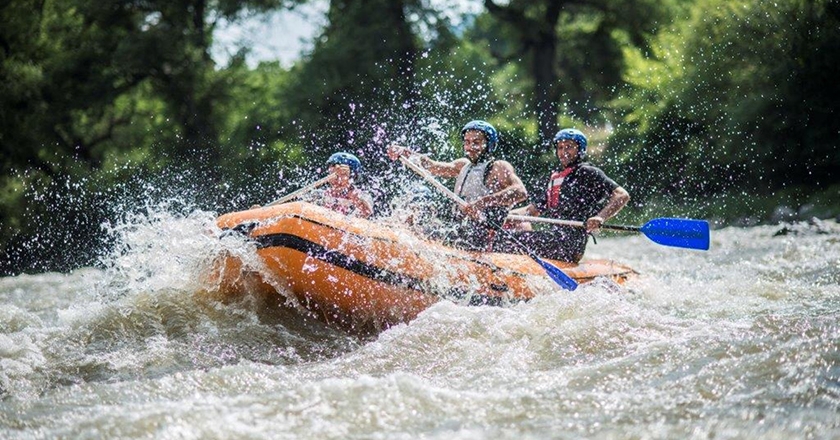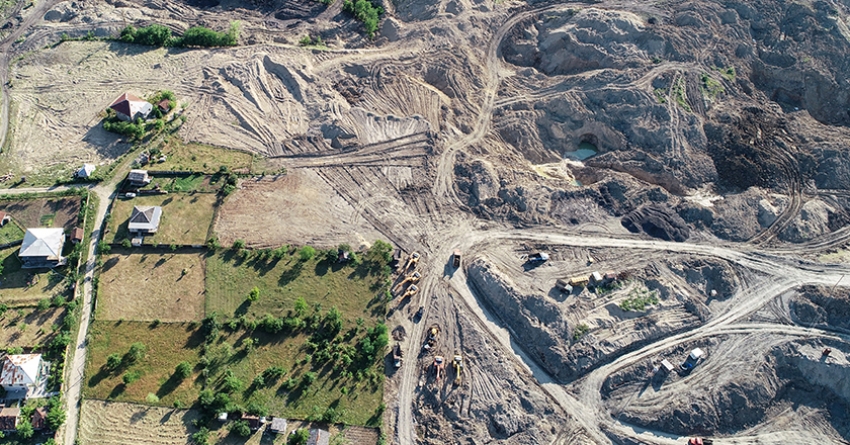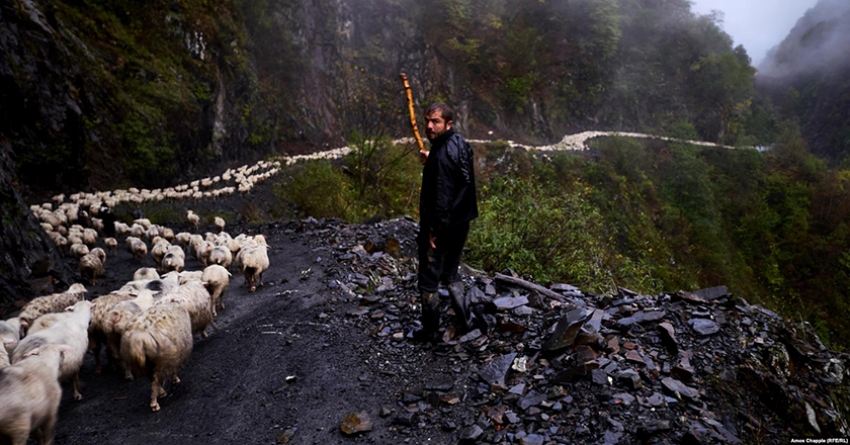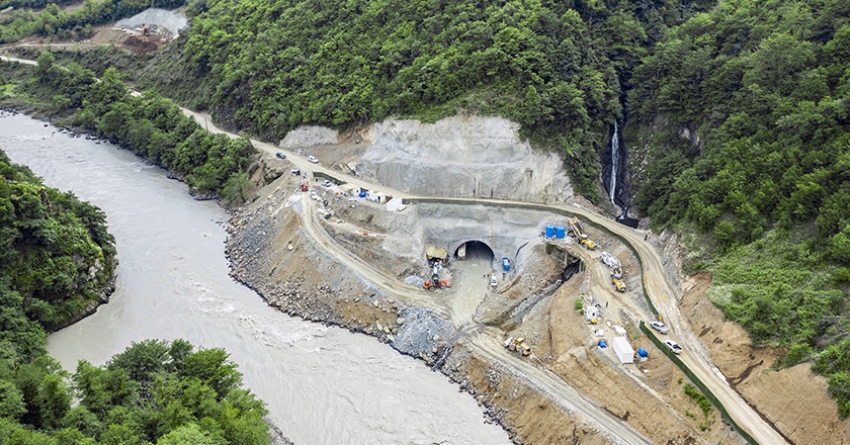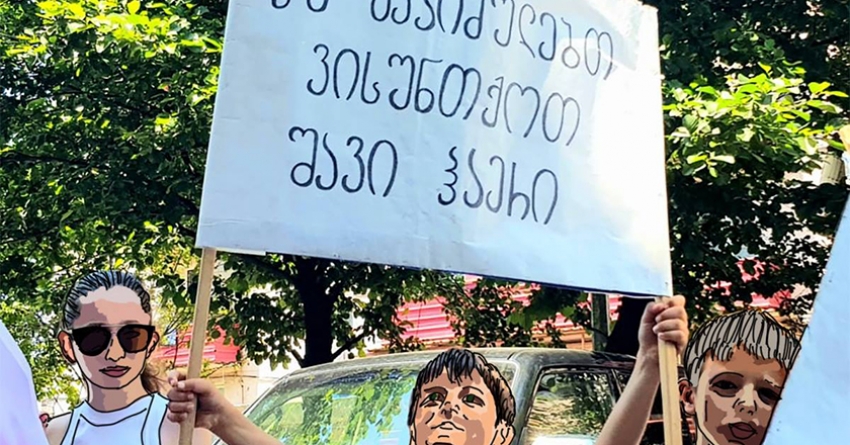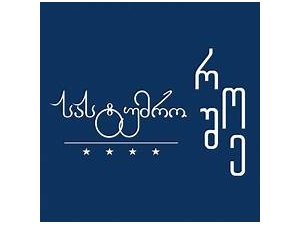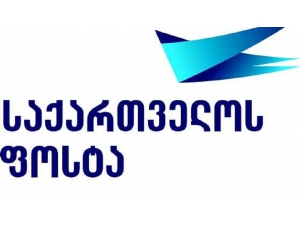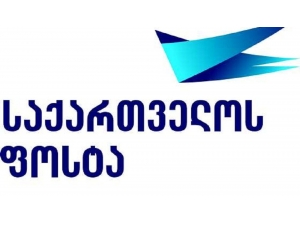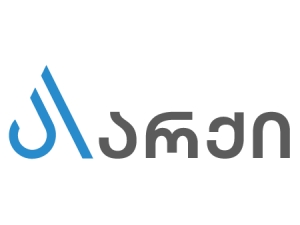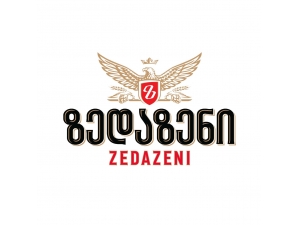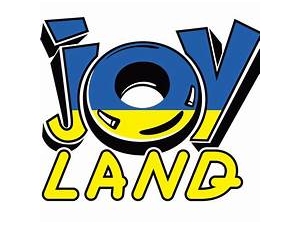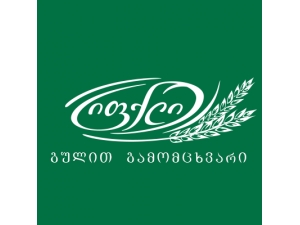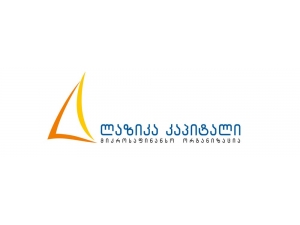German experts participated in crafting the first ever development strategy for protected areas in Georgia between 1990 and 1991. The strategy entailed the establishment of national parks in the following Georgian regions: the Kolkheti lowland, the Central Caucasus, Pshav-Khevsureti-Thusheti, Mountainous Kakheti, the Iori Plateau, Borjomi, and Adjara-Guria-Imereti. As of today, the following national parks have been established: The Kolkheti National Park, the Pshav-Khevsureti National Park, the Tusheti National Park, the Vashlovani National Park, and the Borjomi-Kharagauli National Park. National parks have yet to be established in the Central Caucasus and Erusheti.
Between 2016 and 2017, the German Government and the World Wildlife Fund (WWF) financed and supported research in the Central Caucasus with the eventual aim of establishing a number of protected areas in Racha.
Following the research, a decision was made to establish the Racha National Park, the Shovi Natural Reserve and the Racha Protected Area (protected area with sustainable use of natural resources - Category VI of the International Union for Conservation of Nature (IUCN)).
The Racha National Park is planned to be fully placed within the bounds of the Oni Municipality, and its overall area will equal 26 569 acres.
The Shovi Natural Reserve is also within the bounds of the Oni Municipality and its area is 25 622 acres.
The Racha Protected Area is spread over the following villages in the Oni Municipality: Utsera, Glola, Chiora, Ghebi, Patara Ghebi, and Gona.
According to the Deputy Chairman of the Agency of Protected Areas, Toma Dekanoidze, establishing protected areas in Racha is of utmost importance, as this decision would not only contribute to preserving the biodiversity in the region, but, it would also promote ecotourism and have a positive effect on the socio-economic conditions of the local population.
From the 2021 national budget, 1 057 200 GEL is expected to be directed towards establishing protected areas in Racha. The Racha National Park and the Shovi Protected Area will employ 27 people - a director, a head of security, four senior rangers, 17 rangers, a natural resource specialist, a head of the administrative department, an accountant, and a visitors’ specialist.
In 1994, Georgia signed the Convention on Biological Diversity (CBD). The convention emphasized a number of ambitious goals that were supposed to be implemented by 2020 on a national level:
„By 2020, at least 17% of terrestrial and inland water, and 10% of coastal and marine areas, especially areas of particular importance for biodiversity and ecosystem services, are conserved through effectively and equitably managed, ecologically representative and well connected systems.“
Despite the Georgian government accepting responsibility to work towards achieving this milestone, the Rioni river and its floodplains have not been included in the Racha protected areas. Mountain News investigated the reasoning behind the decision to exclude the Rioni river.
An Ecosystem Sacrificed for the Oni Cascade Hydropower Plant
„The answer to this question is very simple. The protected areas must not get in the way of a number of companies profiting off of it. In this specific case, the locations where the Oni Cascade HPP is planned to be constructed have not been included in the list of protected areas“, Irakli Macharashvili, the coordinator of the Green Alternative conservation program, told Mountain News.
The Minister of Environmental Protection and Agriculture, Levan Davitashvili, gave the permission to construct the Oni Cascade HPP over the Rioni River on March 17, 2020. By this time 34 cases of the novel coronavirus had already been confirmed. The government was recommending that people stay indoors; the population actively began reserving food and medicine; stores and pharmacies largely had a deficit of goods. In four days, the national government declared a state of emergency, and prohibited public gatherings.
The joint-stock company Oni Cascade has official permission to construct an HPP Cascade over the Rioni river.
The Oni HPP Cascade includes the Oni 1 HPP (122.46 megawatts) and the Oni 2 HPP (83,7 megawatts). In the event that the construction proceeds, there are a number of paramount environmental concerns.
- The construction entails cutting down thousands of trees;
- the risk of landslide, near the areas where the construction is planned to take place, is extremely high;
- 21 kilometres of the Rioni river will be covered in tunnels, leading to changes in the cycle of the river. These changes rapidly increase the risk of natural disasters happening;
- the tunnels are also intended to be constructed via drilling and blasting, elevating the risks of an earthquake. Racha is already known for its high seismic activity, and has been scarred from the effects of earthquakes in the past;
- The possibility of losing the Utsera mineral water sources is rather high if the Rioni river is dammed, which will also negatively affect tourism in Racha.
- The project zone, and hence the locations expected to be affected by the project include Oni, and the following villages: Sori, Komandeli, Khuruti, Lagvanta, Nakieti, and Glola.
The general director of the JSC Oni Cascade is Lasha Iordanishvili. He is also the director of the LLC „Peri“ and the shareholder of eight other companies. He owns 100% of the shares of the LLC Alazani Energy. Iordanishvili and his business associates, Ioseb Mchedlishvili and Kakhaber Shevardnadze, are the owners of a number of HPPs in Georgia.
Last year, Lasha Iordanishvili, who has maintained close relations with the Georgian government, despite firm opposition from the local population, utilized government support and the national special forces in an attempt to renew the construction process of the Khadori 3 HPP in the Pankisi gorge. The attempt resulted in a clash between the local population and the special forces. 55 people were injured as a result of the clash.
„The Rioni river and its proximate floodplains represent a very valuable ecosystem. In the past, the Ministry of Energy, and today, the Ministry of Economy and Sustainable Development, had a “tradition” of excluding rivers from the list of protected areas. This is not a new practice. They acted similarly in the case of the Machakhela National Park. The Machakhela River and its tributaries are excluded from the bounds of the Machakhela National Park.
In the same fashion, the main river of Racha and of Georgian in general, Rioni, is not included in the Racha National Park. Instead, glaciers and inaccessible spots are included, but these locations are practically already protected due to an absence of economic interests“, - notes Irakli Macharashvili.
The Suspicious Interests of High-ranking Government Officials and Crony Businessmen
According to the bill, the Racha National Park excludes the villages of Utsera, Ghebi, Gona, and the rivers Zofkhituri and Chveshuri.
Near the Ghebi village, a number of licenses to mine precious metals - gold, silver, and antimony - have been granted. JSC Kavkasiis Mineralebi (Minerals of Caucasus) owns the license to mine gold, silver, and antimony, 10 to 16 kilometres away from the Ghebi village. The license was granted on March 14, 2012 for a period of 30 years. The company told us that, as of now, research is being conducted in the area and that the mining process has not yet begun.
JSC Kavkasiis Mineralebi was founded on December 20, 2011. The members of the supervisory board include: Mikheil Tabliashvili, Davit Eristavi, Revaz Beridze, Zura Tsikhistavi, Aleksandre Antadze (a British citizen), Nikoloz Enukidze (a citizen of both Georgia and Britain), and Troi Travlo (from Zimbabwe).
It is noteworthy that between 2012 and 2016, the General Director of the company was Kakhaber Kutchava. Kutchava, through being in the party-list of the Georgian Dream Party, became a member of the Georgian Parliament. Between 2016 and 2019, Kutchava also led the Environmental Protection and Natural Resources Committee of the Parliament. The same committee initiated the discussion on the bill on protected areas. A few months ago, Kakhaber Kutchava was promoted to the position of Deputy Speaker of Parliament.
90 kilometres away from the Ghebi Village, LTD Kartuli Perspektiva (Georgian Perspective), owns four licenses for mining antimony, gold and silver. The license was granted on March 14, 2016 for a period of 20 years. 94% of the company shares are owned by Aleksandre Kharebava, who is also the director and shareholder of LTD Megvineoba Kharebas. Aleksandre Kharebava is the director of 14 other companies, and holds shares in about 20 companies. He is one of the largest donors of the Georgian Dream Party. In the 2016 Parliamentary Elections, Kharebava, just on his own, donated the maximum amount permissible per individual donation - 60,000 GEL.
„The representatives of the World Wildlife Fund (WWF) in the Caucasus, who are the primary initiators of requests to establish protected areas, try to do whatever they can to counter these corporate interests with the help of their own donors. While their success is rather minimal, it is better than a complete absence of legislation. Having legislation, at least on paper, serves as a potential obstacle for future business endeavours that threaten the unique nature in Georgia - they prevent mass wood-cutting, and large-scale infrastructure projects. Whether they be inside or outside of the government, in an attempt to preserve nature in these areas, we must work in the moment to take away precious land from these individuals interested in pursuing economic activities. I’ll tell you more, a long time ago, the parliament was debating a bill on establishing protected areas in Racha; however, it was blocked last minute by the Minister of Economy and Sustainable Development, Natia Turnava. It appears that they made additional changes to the legislation. This whole process is happening behind the scenes, and is not publicized“, - claims Irakli Macharashvili.
On January 31, 2019, through ordinance N119, the Georgian government presented the bill “Concerning the Establishment and Administration of the Racha National Park” to the parliament so that it could be debated during the spring session. In the description of the document, it is stated that the area of the Racha Protected Area is 64 164 acres. Mountain News found this version of the bill on the official state website of the Environment Information and Education Center. However, after formally requesting the bill from the Agency of Protected Areas in March 2020, we found that the size of the protected area was decreased by 11 973 acres.
The parliament, in 2019, did not debate the bill concerning the establishment of the Racha National Park; yet, a year later, the JSC Oni Cascade has received formal permission to build the cascade hydropower plants.
„The absence of transparency when it comes to the establishment of protected areas is disappointing. The locals that live near the protected areas, and are likely to be affected the most by these processes are not sufficiently informed. There were some public discussions with the locals, however, when I asked if the bill was publicly available or not, the authorities claimed that the document was unavailable. The discussions cannot seriously be considered to be public if the document was unavailable for the audience.
During the time, we were widely discussing how we could not allow the Ministry of Economy and Sustainable Development the freedom to tie our hands. These are the rules of the game the ministries play by“,
The Agency of Protected Areas told Mountain News that ten public meetings took place on the matter, and that about 500 people participated in them. We asked the agency to provide a detailed written account of where and when these meetings took place, of the means through which the public was informed about the fact that the meetings were happening, and of who was attending them. The agency explained that the meetings were organized and performed by the representatives of the World Wildlife Fund (WWF), and that the agency does not have information on who attended the meetings. The agency made this claim after formally writing to us that they would ask the WWF for the information we requested. After several months, we have still not received any of the requested information from the Agency of Protected Areas.
Eter Arsanidze, the chairman of the Racha Community Organization, has not participated in any of the meetings. Other members of the community organization also have not seen any public announcements on when and where the meetings were taking place.
Only one document can be found on the official website of the Agency of Protected Areas. A meeting concerning the establishment of the Racha National Park was conducted during the end of February, 2020 in Oni. The photos attached to the document illustrate that the meeting was mostly attended by employees of the town council of the Oni Municipality.
Another Fatal Flaw in the Bill
The bill concerning the establishment and administration of the protected areas of Racha has one more major flaw. According to the bill, three types of protected areas will be established: The Racha National Park, of which the geographic coordinates are defined in Article 4, and the Shovi Protected Area, the coordinates of which are defined by Article 5. The areas of both are specified in the articles. Article 6 states that a IUCN Category VI Racha Protected Area (protected area with sustainable use of natural resources) will also be established. Article 6 only explicitly states the list of villages included in the protected area, but does not specifically define its geographic coordinates.
According to Irakli Macharashvili, this is a fundamental flaw in the legislation: „We see these types of flaws in other bills as well, for example, in the legislation concerning the establishment of the protected areas in Javakheti. Why is this so? A IUCN Category VI protected area entails the sustainable use of resources. Areas like this should be governed and administered by the local population, by the local communities. They should be large areas, and these areas should include forests, grazing land, and spots that are sources of natural resources for the local population. What is happening currently is not in line with the law on the system of protected areas, or the criteria of the IUCN. The problem lies in the fact that the Agency of Protected Areas has no interest in setting up protected areas of this type. There are category VI protected areas in Javakheti, and Pshav-Khevsureti, but they are not administered by anyone. The Agency of Protected Areas does not have the legal right to administer and govern these areas, and the local self-government is not even aware that they should be the ones governing them. If this bill is discussed in the parliament somehow, I will try to emphasize this flaw in relation to the category VI protected areas, so that it can be corrected.“



